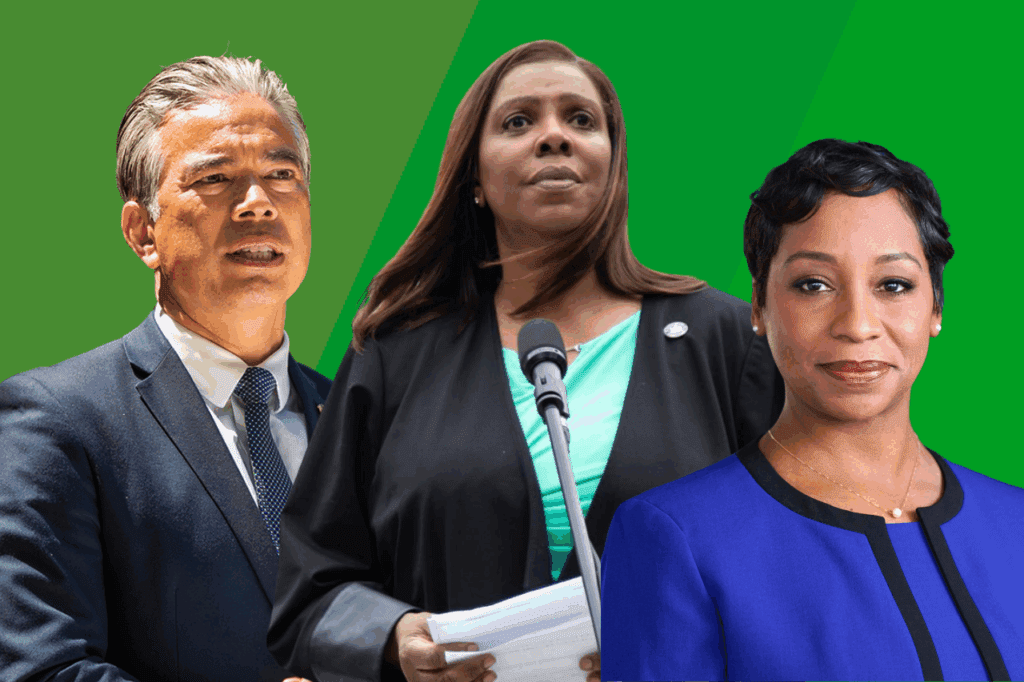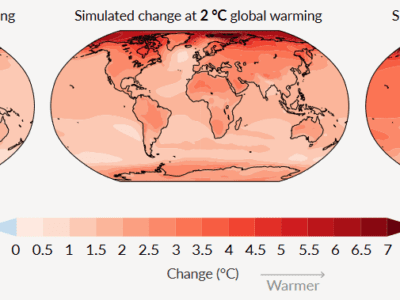States Become “Norm Sustainers” on Environmental Justice
Guest Contributor Sharmila L. Murthy explains how state Attorneys General are acting as important counterweights to the federal government on environmental justice.

Guest contributor Sharmila L. Murthy is a Professor of Law and Public Policy at Northeastern University
In the wake of misleading and inaccurate characterizations by the Trump Administration that wrongly label environmental justice activities as illegal discrimination, the Attorneys General of California, Massachusetts, and New York, joined by the Attorneys General of Arizona, Connecticut, Delaware, Hawaii, Illinois, Maryland, Minnesota, Oregon, Rhode Island, and Vermont from across the nation, issued multi-state guidance last month to affirm the importance and legality of efforts to advance environmental justice.
As the states explain: “Environmental justice aims to ensure that every person has equal access to clean air and water, safe and healthy food, a healthy and sustainable environment, and protection from the impacts of climate change. It prioritizes communities’ self-empowerment and addresses the right of people to participate in decisions that affect them and to receive equal protection from our nation’s laws.” The guidance makes clear that these Attorneys General felt compelled to address the concerns and confusion of stakeholders about their environmental justice efforts, epitomizing their role as the people’s law firm.
By issuing this guidance on environmental justice, these states are acting as important counterweights to the federal government and playing pivotal roles as “norm sustainers.” The term “norm sustainers” was first used to describe states and cities that pledged to uphold the Paris Agreement on Climate Change when Trump pulled the U.S. out of this international agreement for the first time. States and cities could not formally be members of that international treaty. But their public vows to reduce greenhouse gas emissions and take climate action kept alive key norms at the subnational level, which helped to strengthen international law and enabled the U.S. to more easily rejoin the Paris Agreement during the Biden Administration.
The stakes are even higher now because the U.S. is not simply relinquishing its role as an international leader on climate change. Even more pernicious, the second Trump Administration is attacking bedrock laws and policies that protect the health and welfare of all people in our nation through an onslaught of misguided federal actions. An executive order issued April 8 directly targets states that are trying to defend their residents from environmental and climate risks by incorrectly suggesting that state laws that address “climate change” or involve “environmental, social, and governance” initiatives, “environmental justice,” carbon or “greenhouse gas” emissions are somehow unlawful.
Another executive order released the day after Earth Day 2025 signals the Trump Administration’s intention to go after states that impose disparate-impact liability, a seminal principle of civil rights law that the U.S. Supreme Court has recognized as being important to “counteract unconscious prejudices and disguised animus that escape easy classification as disparate treatment.”
Through such misinformation about the supposed “illegality” of environmental justice efforts, along with diversity, equity, inclusion and accessibility initiatives, the second Trump Administration has been challenging fundamental norms of our society. The multi-state guidance contests these inaccuracies, sustaining critical norms on environmental justice and helping to ensure that the moral compass of our nation does not shift.
In their multi-state guidance, these states clarify that despite what Trump’s executive orders purport to do, “the President cannot alter the laws passed by Congress, nor can his executive orders or agency memoranda change the protections afforded by the Constitution or state law.” These states underscore that the “President cannot unilaterally prohibit lawful state, Tribal, and local policies, programs, and activities to advance environmental justice.” They reinforce their commitment to enforce laws and enact policies and programs “to further public health, safety, and welfare.”
The states also provide valuable examples of “the kind of work that public entities, non-profit and philanthropic organizations, and businesses lawfully undertake to advance environmental justice.” These include “providing education, technical assistance, and funding support;” “public engagement and participation;” “burden identification and analysis;” “preventing and mitigating pollution exposures;” “climate readiness and resilience;” and “enforcement and remedies.”
Even if the Federal government is not committed to helping all people in our nation, these states are taking up the mantle. They seek to ensure not only that existing laws are enforced, but that fundamental norms around the importance of advancing environmental justice are sustained across our country.
Recent events have highlighted just how fragile our democracy is, with Trump likening himself to a king and acting more like an authoritarian ruler than a democratically elected leader. At this critical moment in time, it is essential that we remember that we live in the United States of America—a federal country where the Tenth Amendment of our Constitution states that “The powers not delegated to the United States by the Constitution, nor prohibited by it to the States, are reserved to the States respectively, or to the people.” States have power to take action to advance environmental justice and those that signed on to the multi-state guidance are lawfully exercising it.
Although the Trump Administration has sought to vilify and declare “illegal” existing laws, policies, and activities on environmental justice, these states have taken a heroic stand to issue this guidance. Their goal is one that we should all get behind: to help all people have access to clean air to breathe, safe water to drink, and healthy communities in which to live, play, work, learn, and worship.
Sharmila L. Murthy is a Professor of Law and Public Policy at Northeastern University and Faculty Co-Director for the Center for Public Interest Advocacy and Collaboration.







Reader Comments